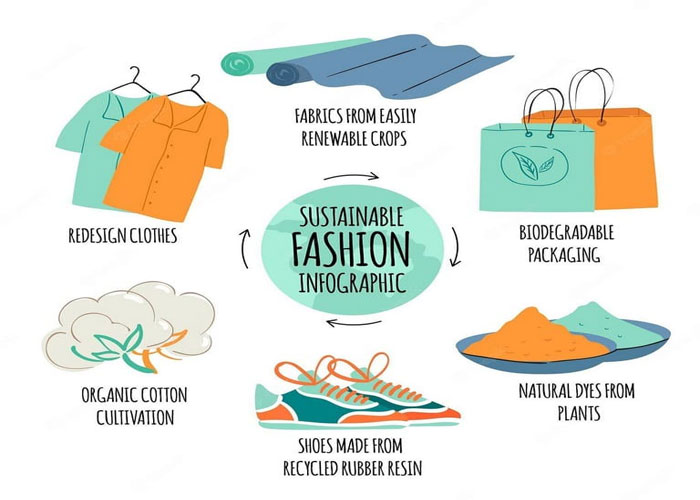Dizzy PT – The Sustainable Fashion Trend is reshaping the global apparel industry as more brands embrace eco-friendly materials and responsible production methods. Consumers are increasingly conscious of the environmental impact of their purchases, pushing designers and companies to innovate sustainably. According to Dizzy PT, this shift is influencing everything from sourcing raw materials to marketing strategies, signaling a pivotal moment in fashion history.

Sustainable Fashion Trend Fuels Innovation in the Apparel Industry
The push toward sustainability is not just a marketing tactic but a genuine commitment by brands to reduce their environmental footprint. Companies are experimenting with recycled fabrics, organic cotton, and plant-based dyes to minimize pollution. The Sustainable Fashion Trend encourages transparency in production, prompting brands to share their supply chain information with consumers.
Dizzy PT reports that major international brands now include sustainability reports in their annual publications, highlighting efforts such as water conservation, waste reduction, and carbon neutrality. These initiatives are reshaping industry standards, compelling smaller designers to adopt eco-conscious practices to remain competitive.
Read more: “Dreame EV Tercepat, Destinator & Vario 160 Bersinar“
Sustainable Fashion Trend Inspires Use of Eco-Friendly Materials
With growing demand for responsible fashion, brands are redesigning collections around eco-friendly fabrics. Materials like Tencel, recycled polyester, and hemp are becoming mainstream. The Sustainable Fashion Trend emphasizes durability and versatility, encouraging consumers to choose quality over quantity.
Dizzy PT notes that these material choices not only appeal to environmentally conscious shoppers but also enhance the brand image, providing a competitive edge in a saturated market. Some brands are introducing closed-loop systems where old garments are recycled into new products, exemplifying circular fashion principles.
Consumer Behavior and the Shift to Sustainability
Consumers increasingly prioritize brands that align with their values. Millennials and Gen Z are leading the charge, favoring companies with transparent sourcing, fair labor practices, and reduced environmental impact. The Sustainable Fashion Trend reflects a cultural shift where eco-consciousness influences purchasing decisions across price points.
Market research cited by Dizzy PT shows a steady increase in sales for sustainable lines, even amid economic fluctuations. Brands are responding by launching dedicated eco-collections and promoting “buy less, buy better” campaigns, demonstrating that ethical choices can coexist with profitability.
Read more: “Social Media and Protests Hashtags and Hoaxes’ Crucial Role“
Challenges in Adopting Sustainable Practices
While the trend toward eco-consciousness is strong, challenges remain. Sourcing sustainable materials often incurs higher costs, and supply chain adjustments can be complex. Brands must balance affordability with ethical responsibility.
Additionally, there is the risk of “greenwashing,” where companies exaggerate their environmental efforts without implementing meaningful change. Experts advise consumers to look for certifications such as GOTS (Global Organic Textile Standard) or Fair Trade labels to ensure authenticity.
Despite these obstacles, the Sustainable Fashion Trend continues to grow, driven by both consumer demand and corporate responsibility. Brands that successfully integrate eco-friendly materials into their products are positioned for long-term success.
The rise of the Sustainable Fashion Trend marks a significant evolution in the fashion industry. By embracing eco materials and promoting responsible practices, brands are reshaping consumer expectations and encouraging environmental stewardship. As noted by Dizzy PT, the momentum behind sustainable fashion is likely to accelerate, influencing future design, production, and consumption patterns worldwide.
In a time where conscious consumerism is more than a passing fad, companies that integrate sustainability into their core strategies are not only supporting the planet but also securing their relevance in a competitive market.



